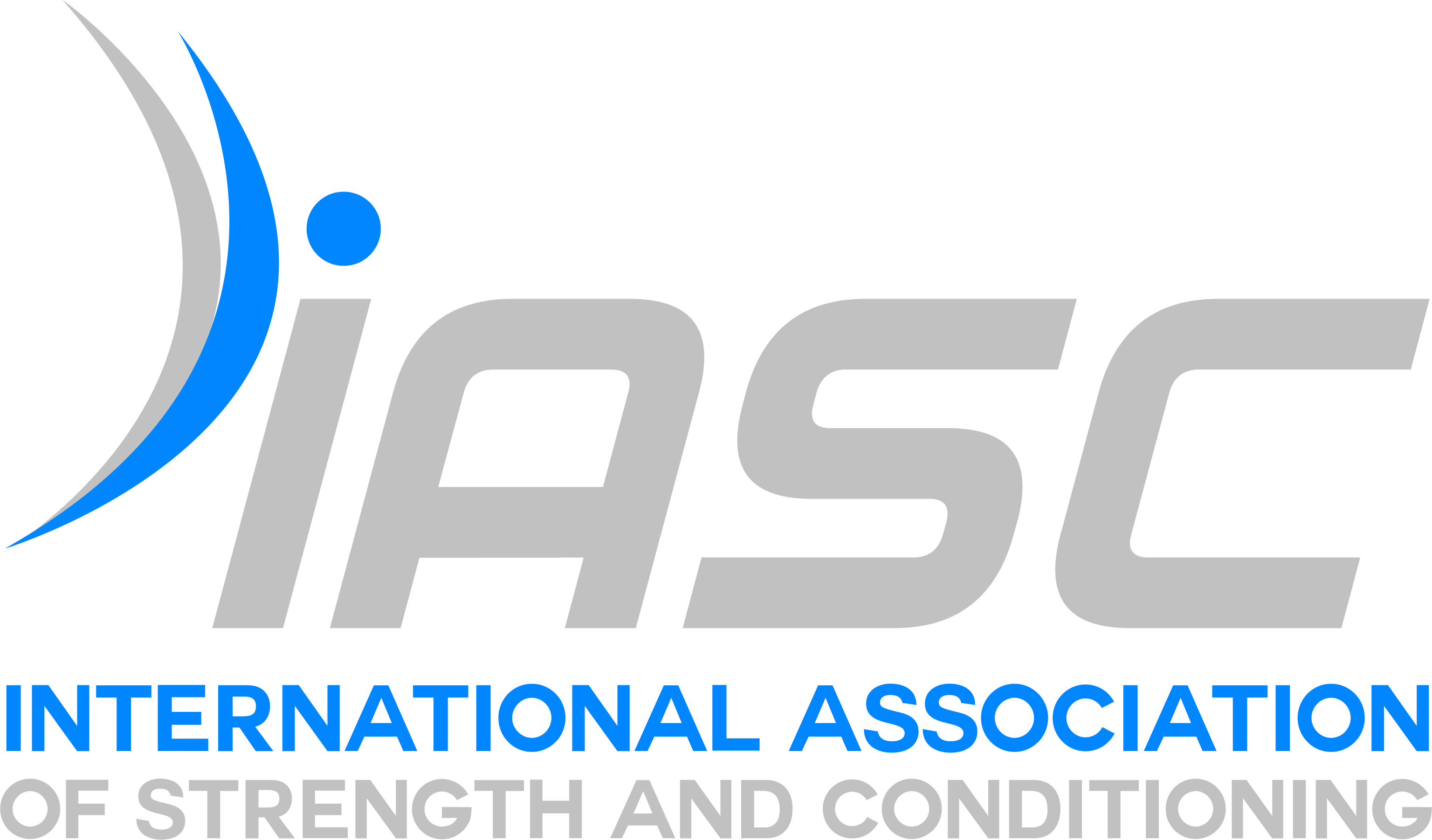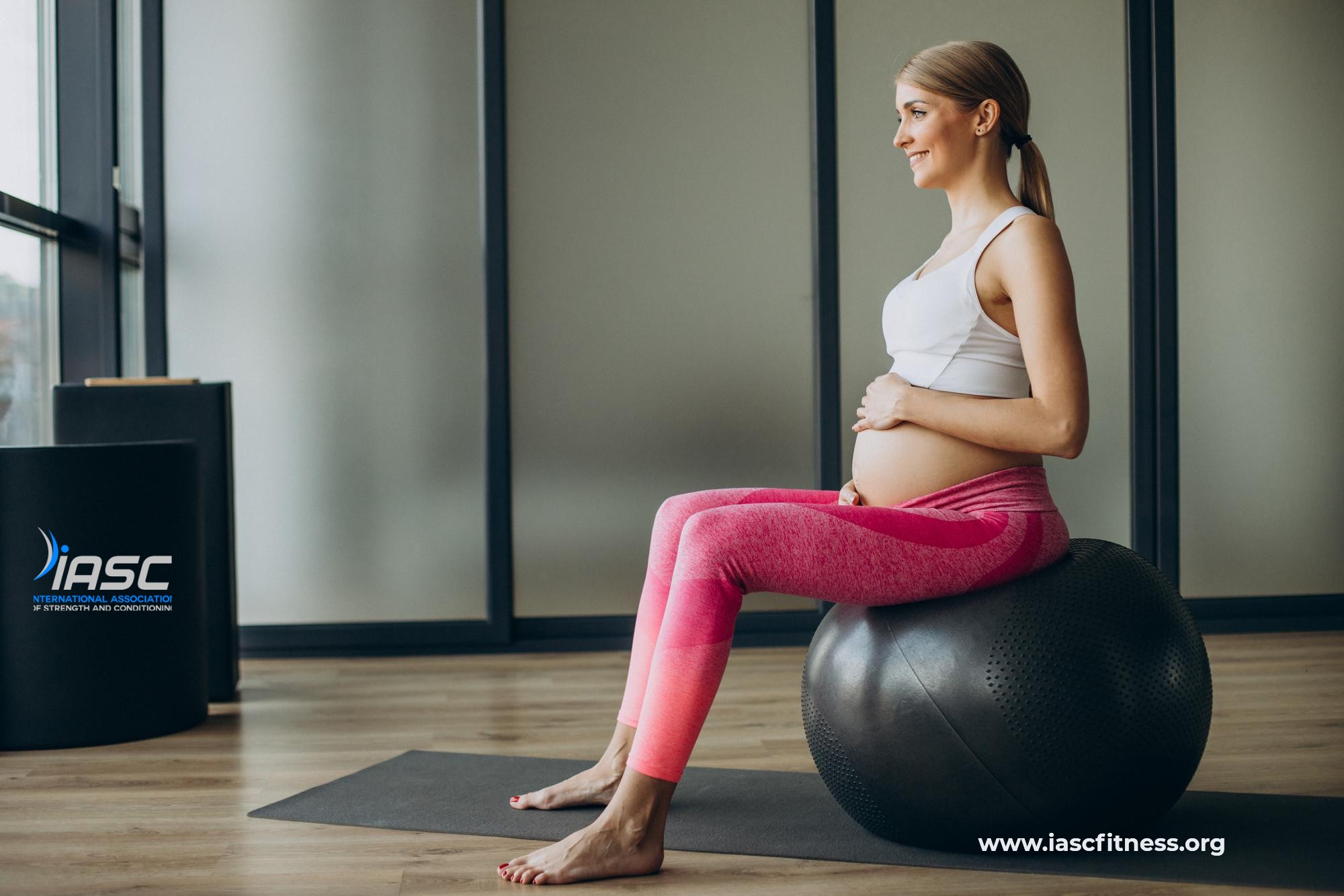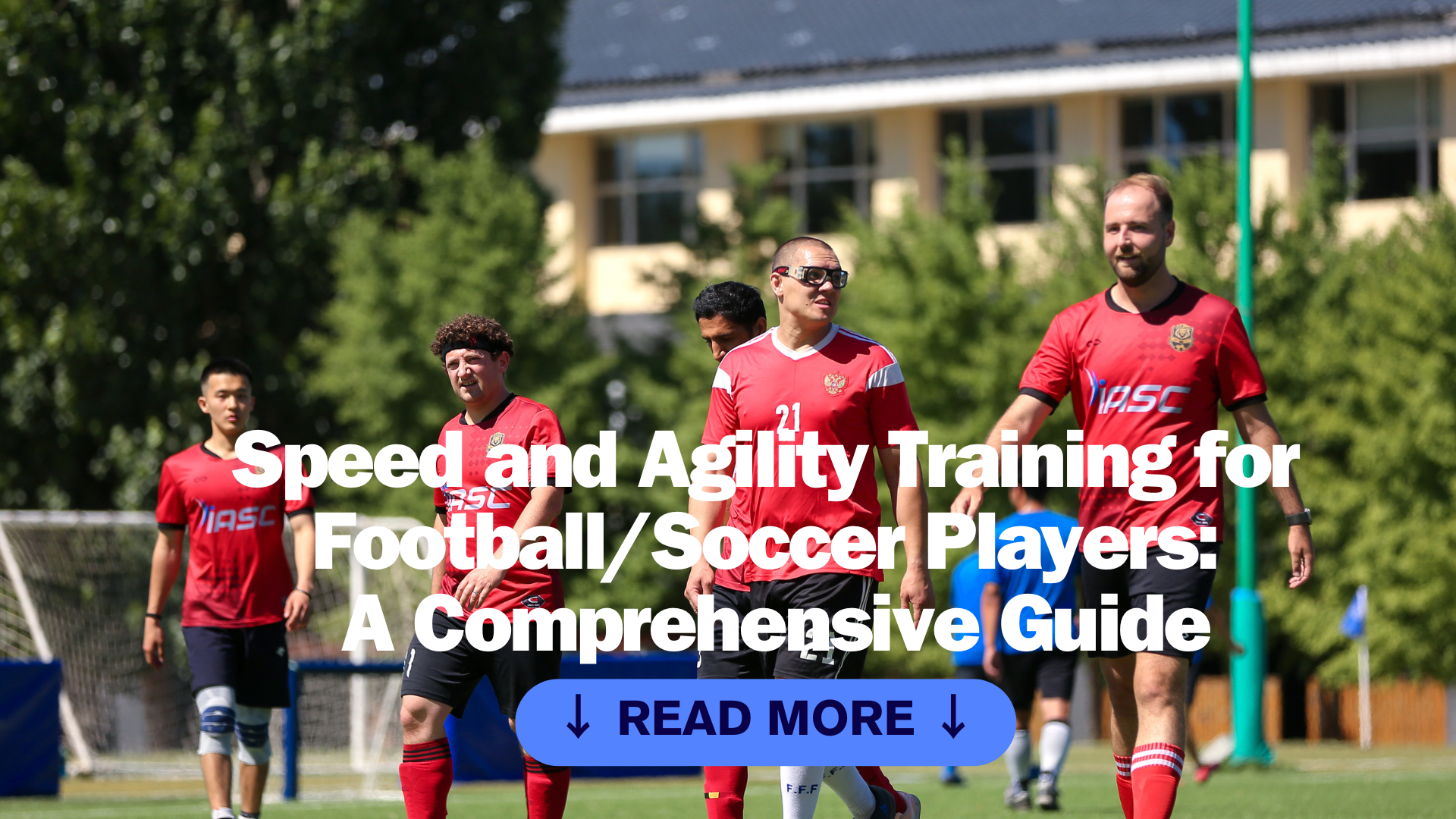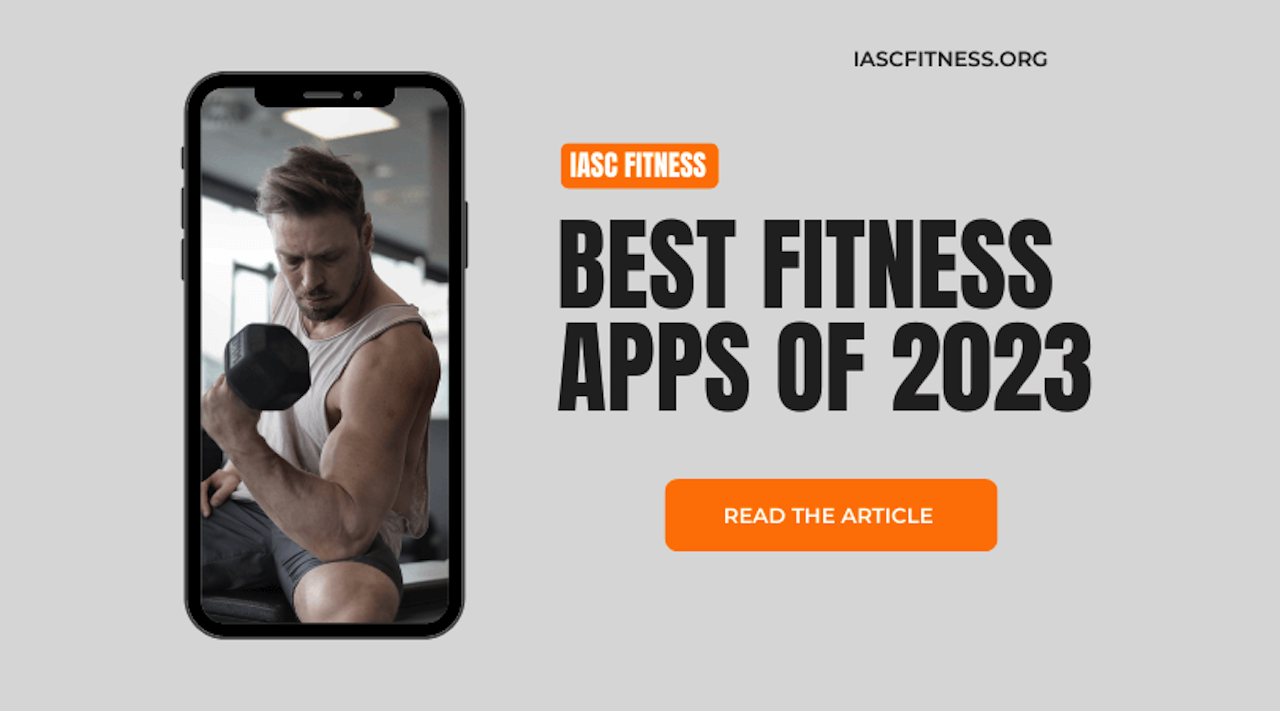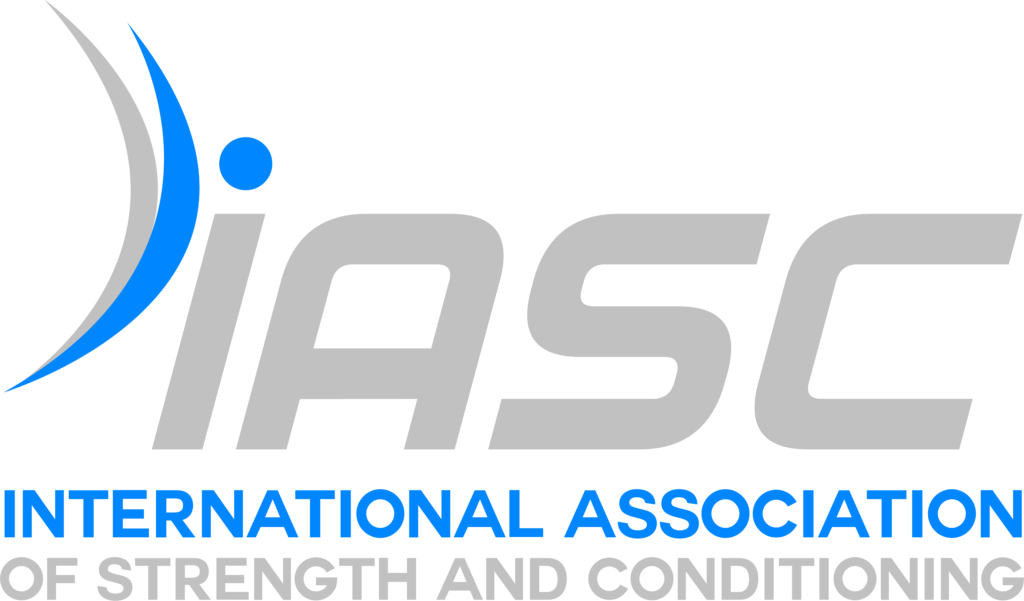When I was pregnant 19 years ago with our daughter, thanks to age-old myths and misconceptions stating that strenuous exercise will harm the baby during pregnancy, my gynecologist advised me to quit my job as a Fitness Professional.
During that time, I was mainly teaching daily group exercise classes such as Spinning, High-low-& Step-Aerobic, and LesMills Body Pump and I loved (and still love) my job!
I asked him to give me a reason why he advised me against exercise during my pregnancy and his answer was:
“Well, you likely feel more tired than usual, and your back might ache from carrying extra weight, so perfect time to sit back and relax! “Just to be on the “safe” side!” he added.
I agree: if the mother has a form of chronic heart and/or lung disease, preeclampsia, severe anemia, insufficient cervix or cerclage, placenta previa, a history of preterm labor or miscarriages, she should stay on the safe side and refrain from exercises.
But I was 29, physically active forever, never had any health issues and now my doctor is telling me to quit my job?!
Yes, it’s true, you might feel more tired and might feel out of breath faster. This is due to hormonal changes and because the body needs to distribute nutrients and oxygen to the baby and to an additional organ, the placenta

.
But keeping active during pregnancy offers not only physical but also emotional benefits
Here are just some examples:
- In terms of extra weight, exercise promotes healthy weight gain and helps to get back into shape post-partum.
- Stronger muscles, hence you can carry that extra weight more easier
- Less back pain due to better posture
- Cardiovascular exercise prepares the mother to endure labor pain and delivery
- Might help to reduce the risk of developing preeclampsia and the development of gestational diabetes
I have been working in the Fitness Industry for 27 years and I am specialized in pre-post-natal training for 19 years I would say that the most common questions expecting mothers have (if it’s the first pregnancy) is most likely:
“Will Exercise harm the baby!?”
Answer:
If the woman & baby is healthy, exercise isn’t going to hurt the baby as it is well protected in the uterus surrounded by amniotic fluid which works as a cushion for the baby.
“ Will Exercise will increase the risk of miscarriage?”
Answer:
There is no proven evidence or connection that exercise itself is linked to miscarriages.
Miscarriage in the first trimester (first 13weeks) has been only associated with very heavy weightlifting, so athletes should consider reducing the loads, especially within the first trimester, and also consider reducing the lifts in the second and third trimesters.
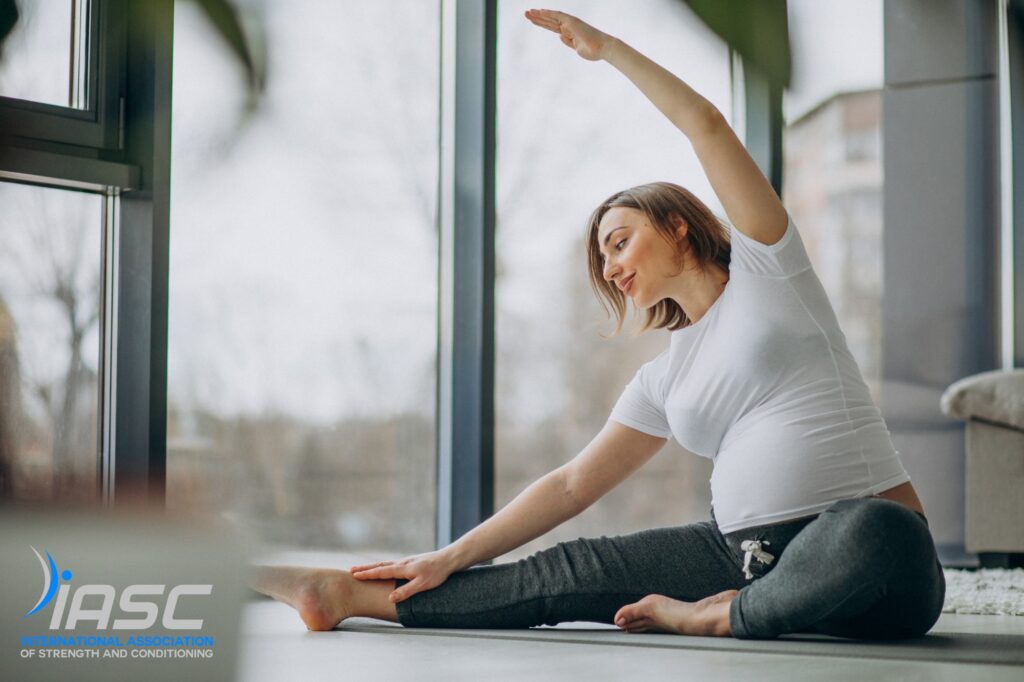
“Can I exercise in the third trimester or when the baby gets too heavy?”
Answer:
Regular exercise can help to cope with physical changes such as extra weight and build stamina for the challenges ahead.
The best way is to listen to your body and watch for signs of a problem.
Stop exercising and contact your health care provider if you have:
- Vaginal bleeding
- Dizziness
- Headache
- Increased shortness of breath before you start exercising
- Chest pain
- Painful uterine contractions that continue after rest
- Fluid leaking or gushing from your vagina
- Calf pain or swelling
- Muscle weakness affecting balance
“I just found out that I am pregnant and I have not been exercising for years. Is it safe to start a program?
Answer:
The recommended time of physical activity is a minimum of 150 minutes per week, however, if you haven’t exercised for a while, begin with as little as 10 minutes of physical activity a day.
Build up to 15 minutes, 20 minutes, and so on, until you reach at least 30 minutes a day.
Keep in mind that the first 12 weeks are most fragile hence regardless of whether you were a “gym junkie” before you conceived or a couch potato, you should get the doctor’s consent before you either continue your gym routine or commence a program.

Is there any exercise I should avoid during pregnancy?
Answer:
Again: listen to your body and take it easy if it does not feel right.
For example:
- Any exercises that force you to lie flat on your back for a longer time (usually second/third trimester) you might feel dizzy or nauseous due to the so-called
“Supine hypotensive syndrome”.
This is when the baby gets heavier it might compress the inferior vena cava when you lie too long on the back.
- Scuba diving could put your baby at risk of decompression sickness
- Contact sports, such as ice hockey, soccer, basketball, and volleyball
- Activities that pose a high risk of falling — such as downhill skiing, in-line skating, gymnastics, horseback riding, etc.
- Exercise at high altitude
- Activities that could cause you to experience direct trauma to the abdomen, such as kickboxing
- Hot yoga or hot Pilates
- Holding your breath during any activity or the Valsalva maneuver technique
- Activities where falling is likely (such as skiing and horseback riding)
- Any exercise that may cause even mild abdominal trauma, including activities that include jarring motions or rapid changes in direction
- Activities that require extensive jumping, hopping, skipping, or bouncing
- Any kind of trunk flexion such as crunches, sit-ups, straight-leg toe touches
- During pregnancy the hormone Relaxin is released to make the tissues that support your joints more relaxed, so avoid any movements that may strain or hurt your joints
There are numerous health benefits for women who exercise during pregnancy but
one of the reasons why staying active during pregnancy is important is that it helps you also to get back into shape faster after the baby is born, to cope with long “nightshifts” and with the
so-called “Baby-blues”
To bring this short article to an end here is how I saw my 2 pregnancies:
I treated it as an event, made use of the principles of specificity, and used targeted exercises to prepare me for the big day ahead
I always listened to my body and combined my favorite exercises to maintain overall strength, cardiovascular exercises I enjoyed, added pelvic floor exercises and relaxation techniques.
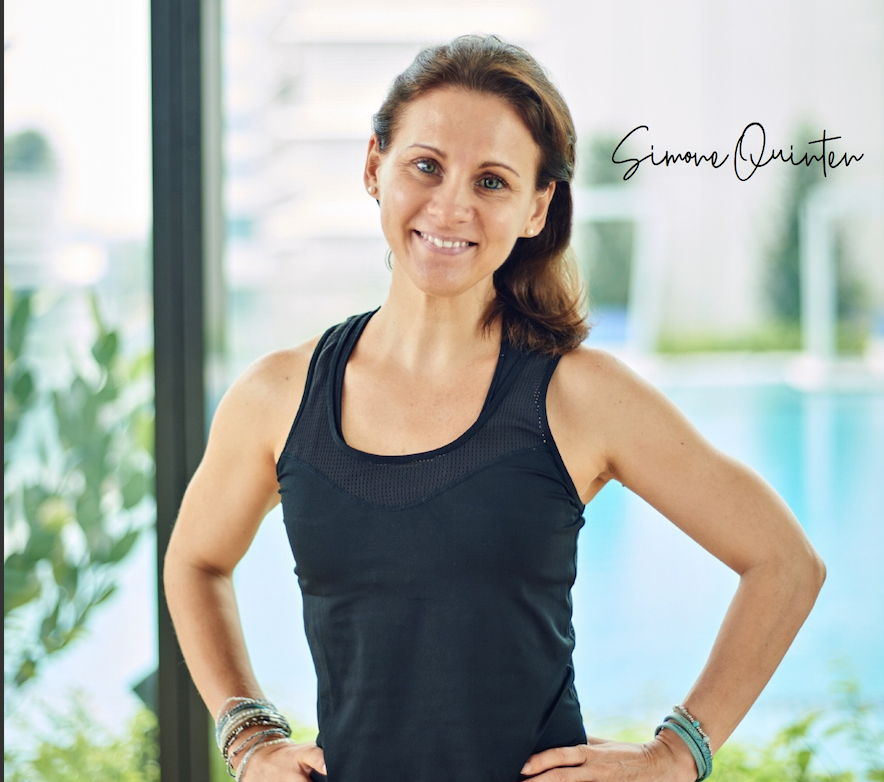
Simone Quinten
Simone is the founder of Body for Life Fitness, which is an education provider for Fitness Professionals as well as a private boutique gym offering 1:1 personal training. She is originating from Germany and has been living in Malaysia since the year 2000.
She became representative of the International Association of Strength and Conditioning in Malaysia in 2022.
Taking inspiration from her own experiences throughout childbirth, Simone who has 2 children specialized in Pre- and Postnatal Fitness & Pilates, and she had been nominated among the top 12 finalists elite female Personal Trainer at the FITNESS BEST ASIA Awards 2017 in Singapore.
